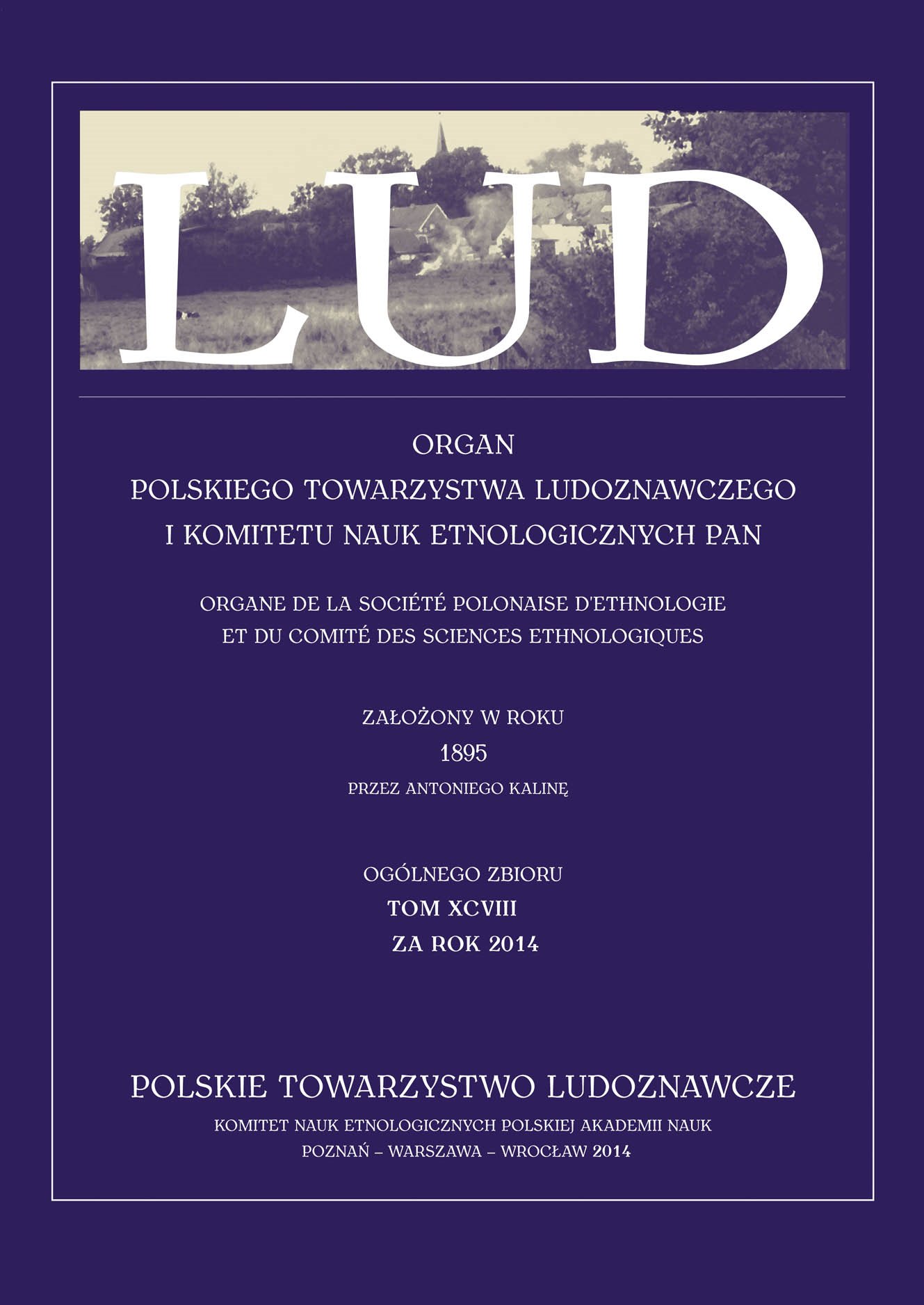RECEPCJA SPUŚCIZNY KOLBERGOWSKIEJ I KIERUNKI JEJ UPOWSZECHNIANIA
KOLBERG’S HERITAGE RECEPTION AND DIRECTIONS OF ITS POPULARIZATION
Author(s): Anna Weronika BrzezińskaSubject(s): Museology & Heritage Studies, Customs / Folklore, Cultural Anthropology / Ethnology, 19th Century
Published by: Polskie Towarzystwo Ludoznawcze
Keywords: Oskar Kolberg’s Year; regional and cultural education; popularization; Kolberg’s heritage;
Summary/Abstract: Oskar Kolberg’s Year celebrated in 2014 provides an ideal opportunity for reflecting on trends in popularization of the researcher himself and his works. The aim of the article is to consider the recognition of Oskar Kolberg as a person, as well as his heritage. Such issues as potential recipients of his works and the way in which the materials can inspire subsequent generations of researchers and documentalists are also discussed in the article. According to the survey research conducted at the beginning of 2014 only 8% of adult Poles were able to answer the question who Oskar Kolberg was. This result poses an opportunity to consider the ways of popularizing Kolberg’s materials among different groups of recipients. The way of popularization depends on the target group, their abilities and needs. Additionally, the author conducted an Internet survey among persons professionally related to culture and science popularization that referred to the recognition of Kolberg himself, as well as his works. To a great degree, the surveyed referred to his works in search of inspirations for modern educational and animation practices. All the same the initiatives that originate in regional education become the main direction of popularizing knowledge about Kolberg’s work. Due to the programme changes introduced in 2009 in the compulsory educational system, this type of information has been marginalized and dispersed, which poses a huge educational challenge to cultural institutions. These institutions themselves are primarily responsible for education as regards the knowledge about regions and available source material.
Journal: LUD
- Issue Year: 98/2014
- Issue No: 1
- Page Range: 81-101
- Page Count: 21
- Language: Polish

